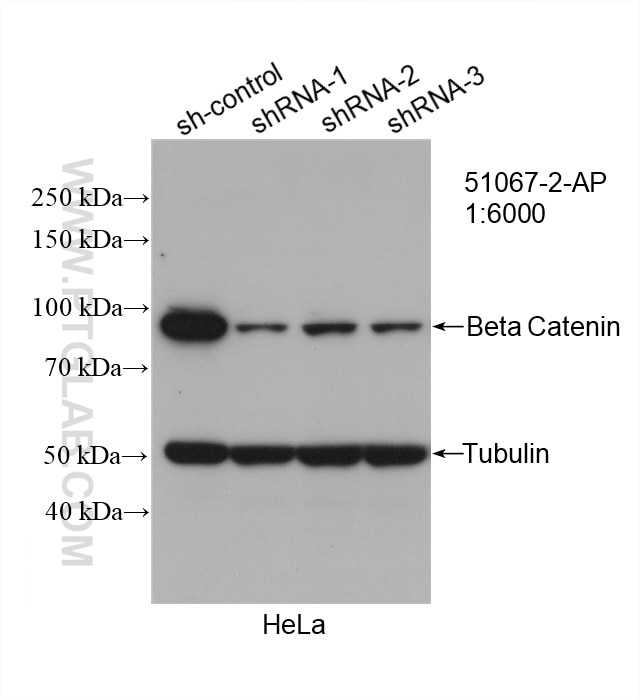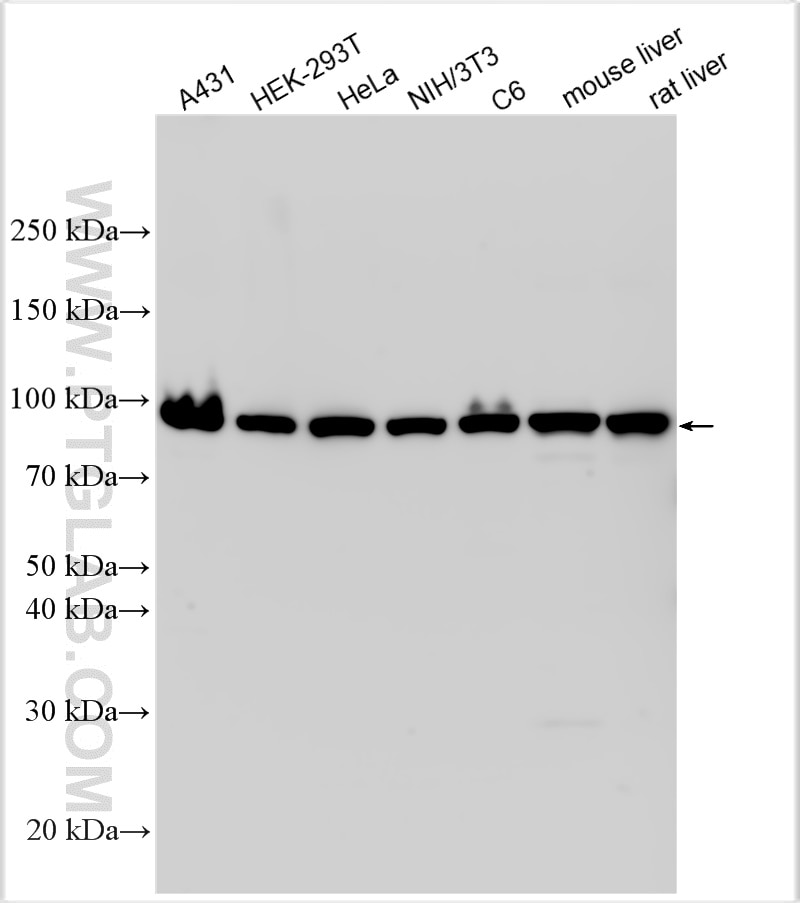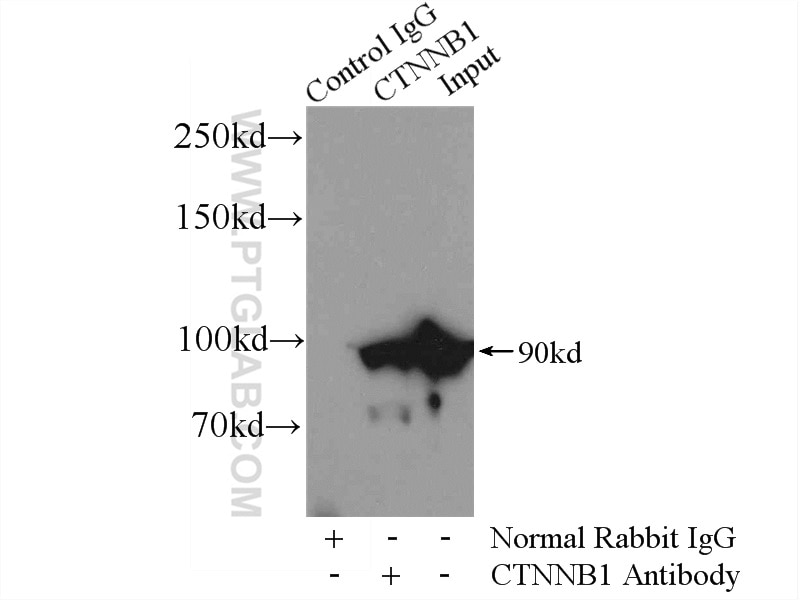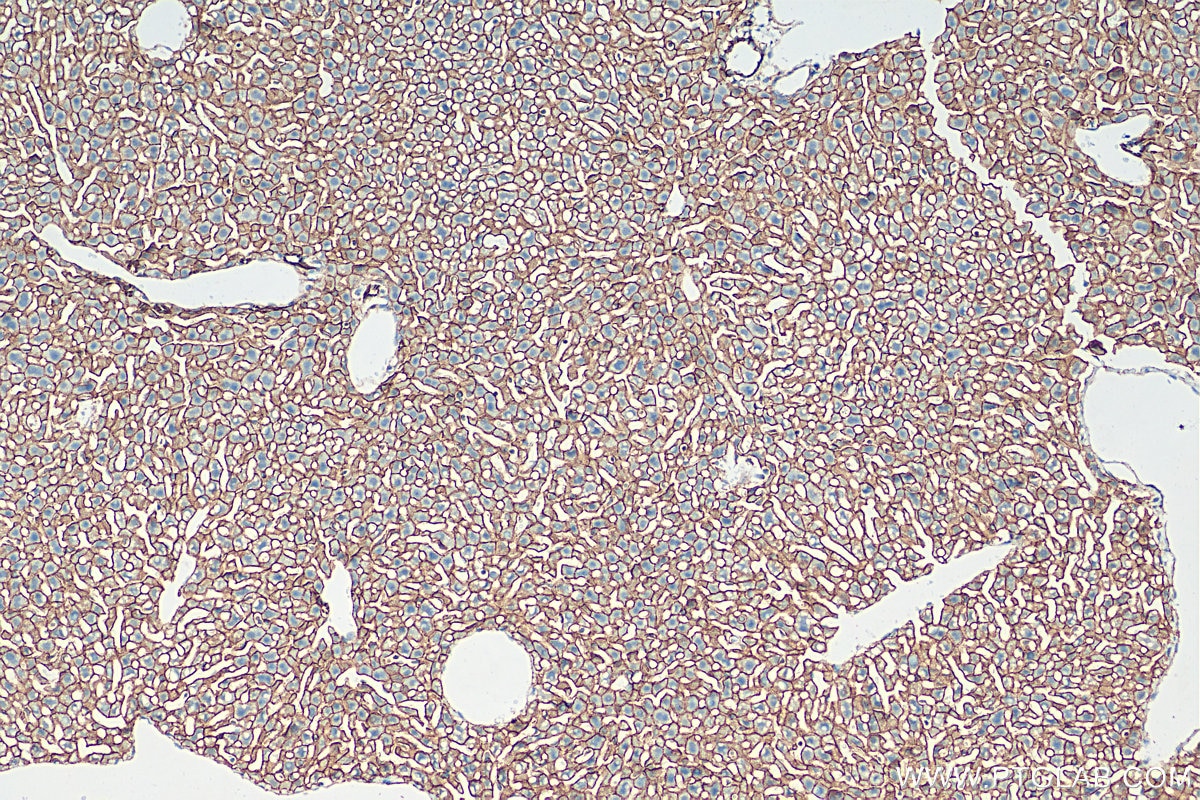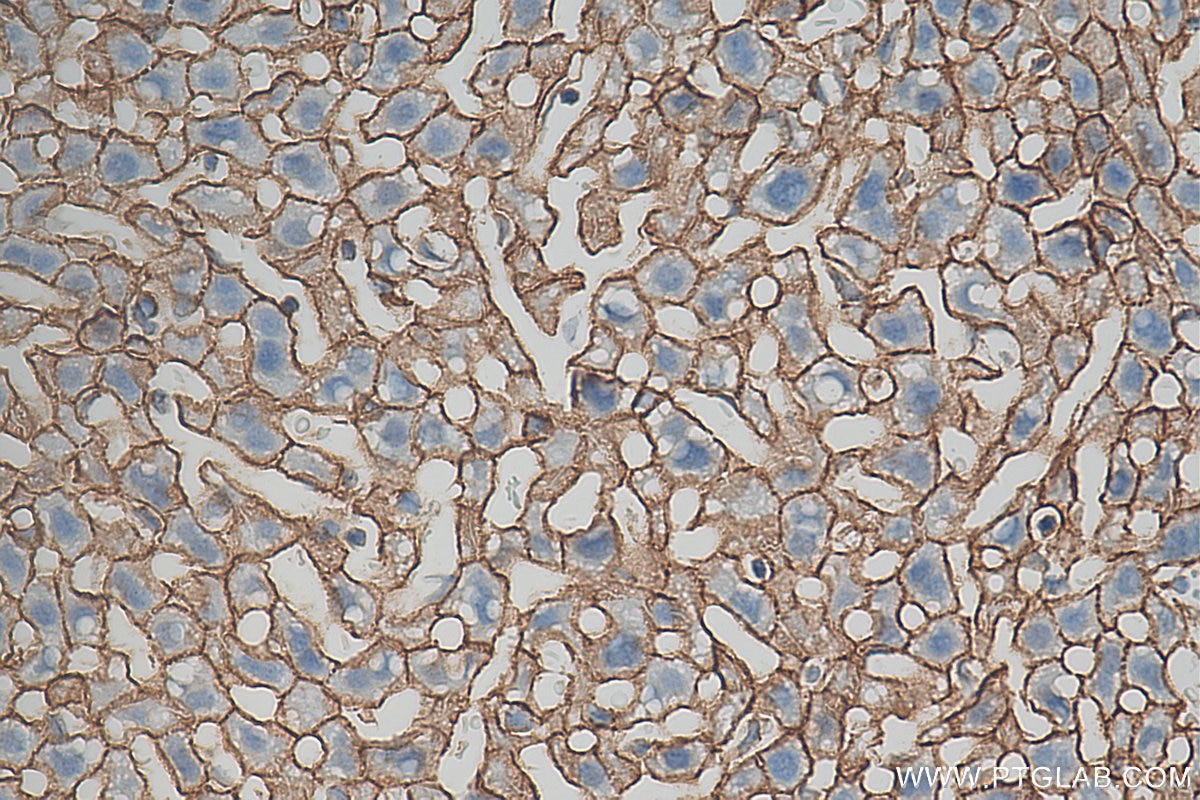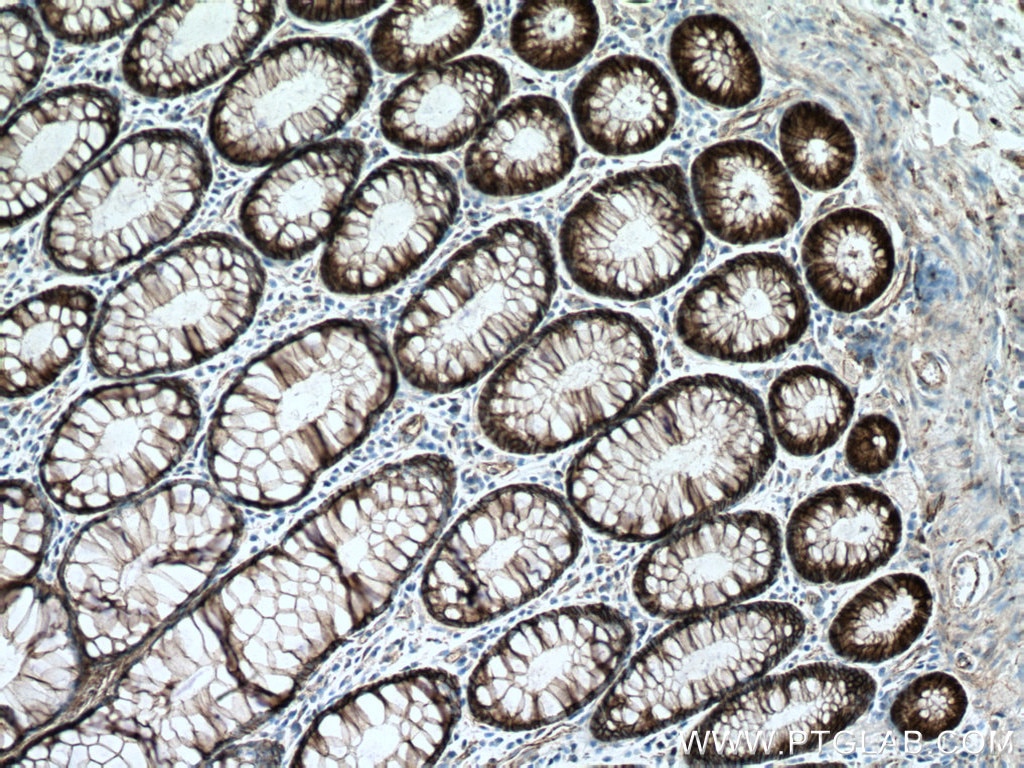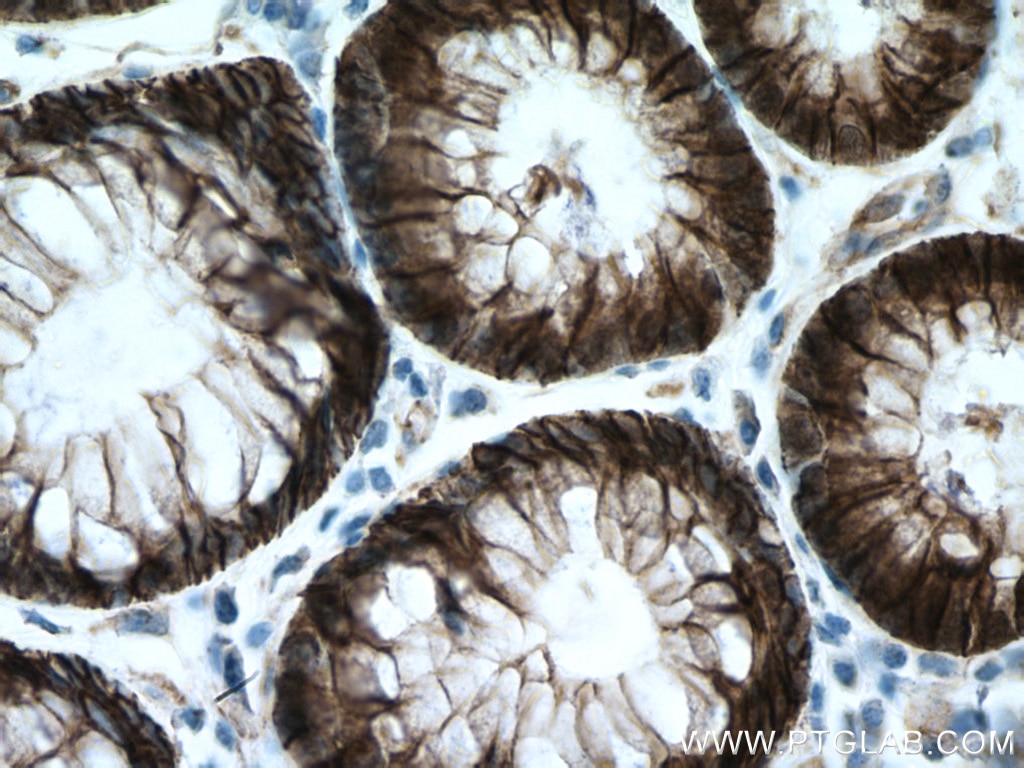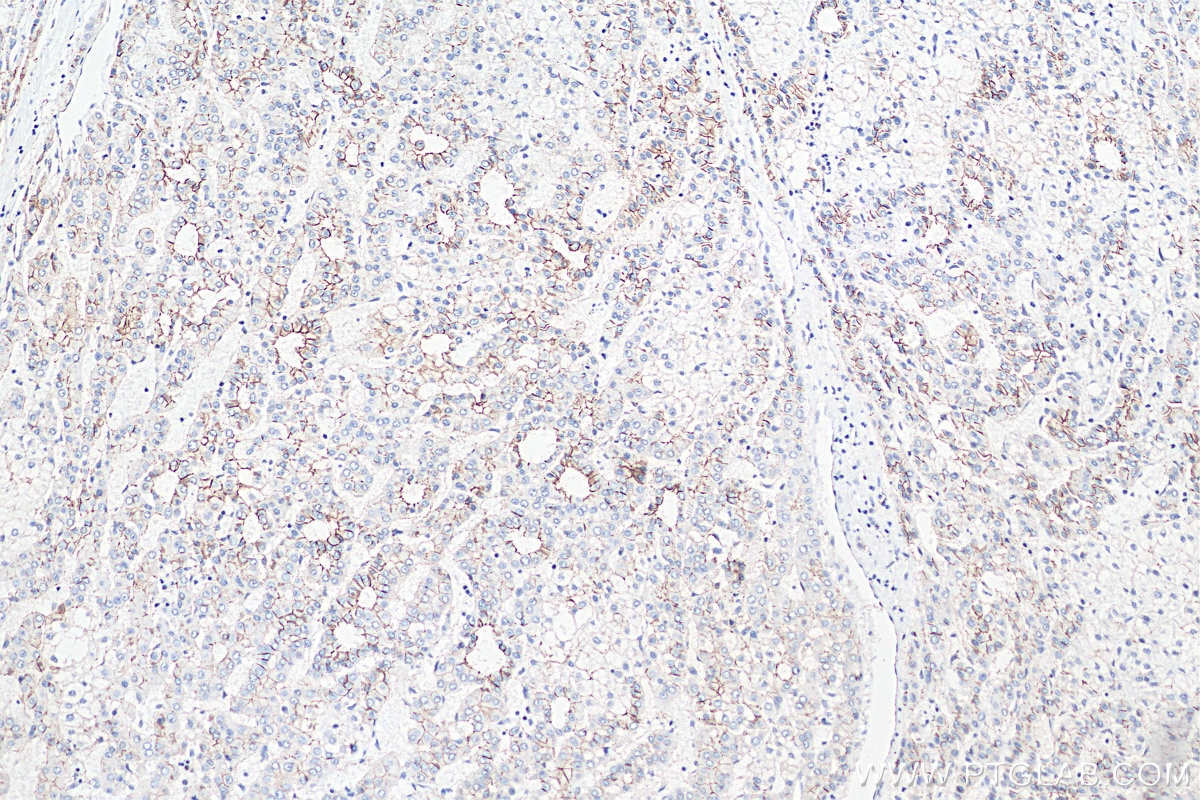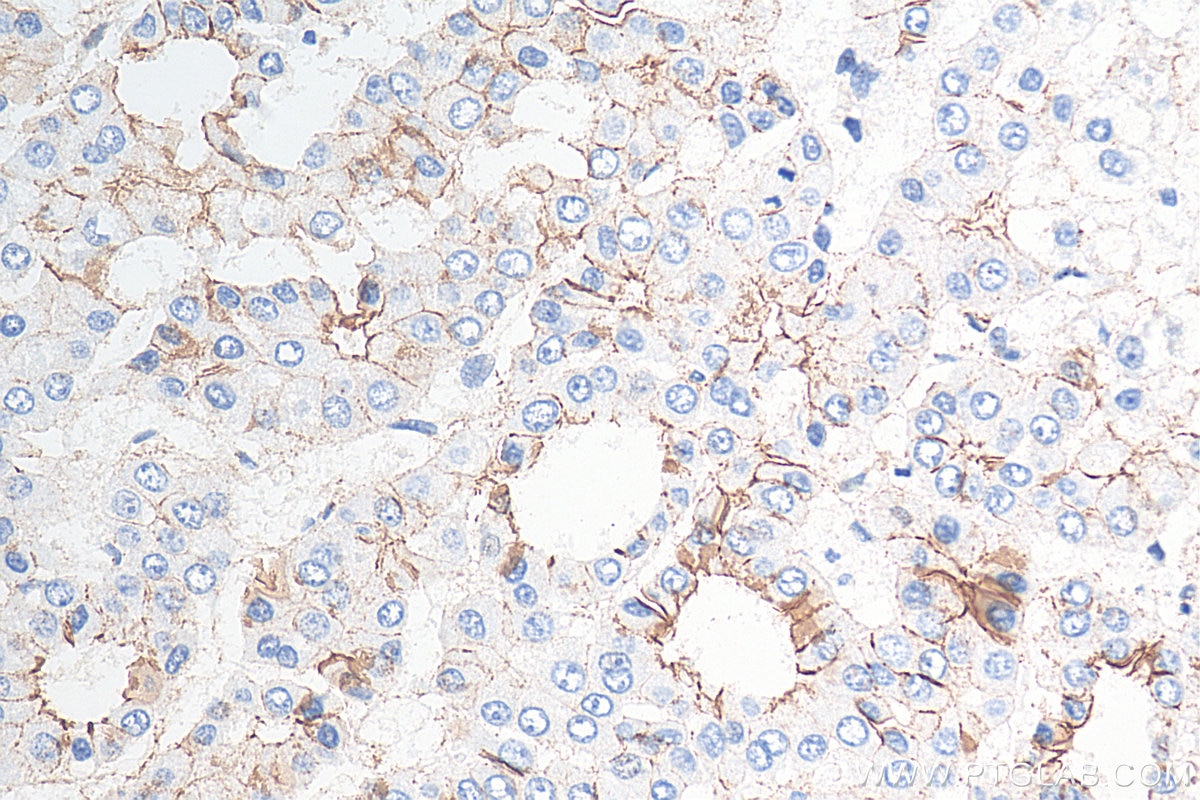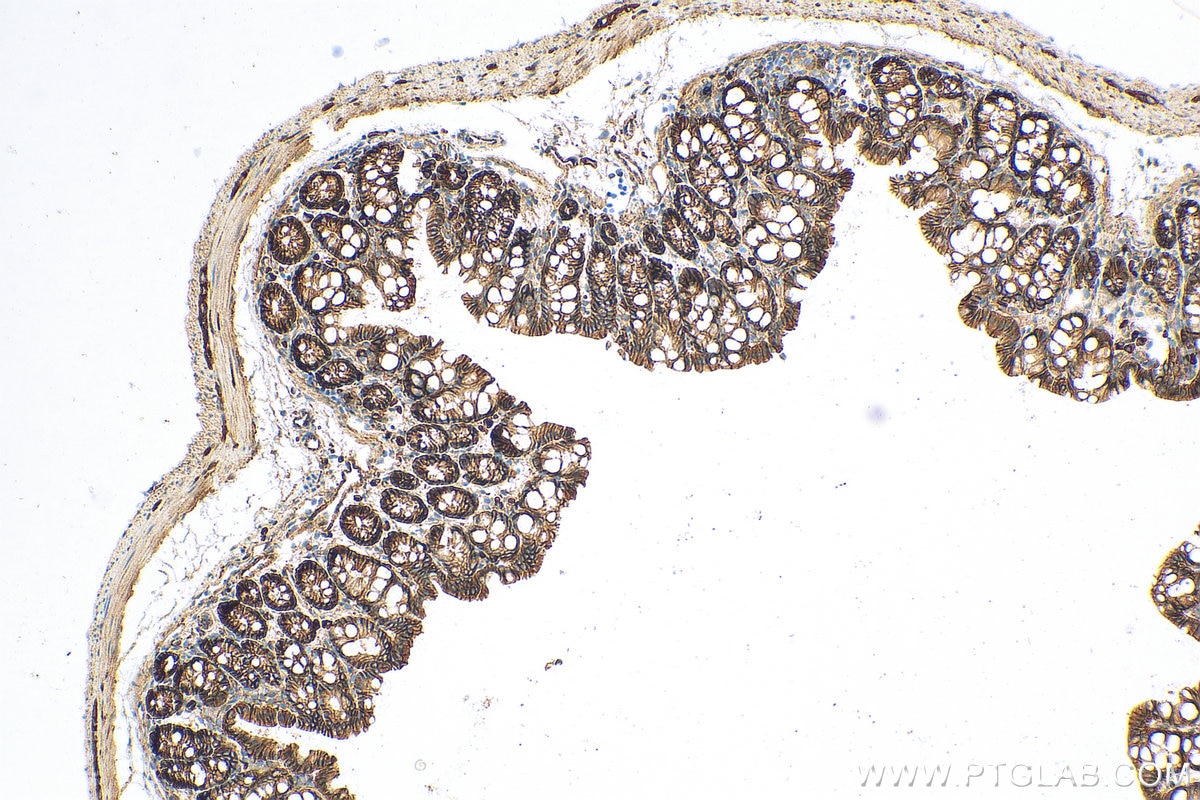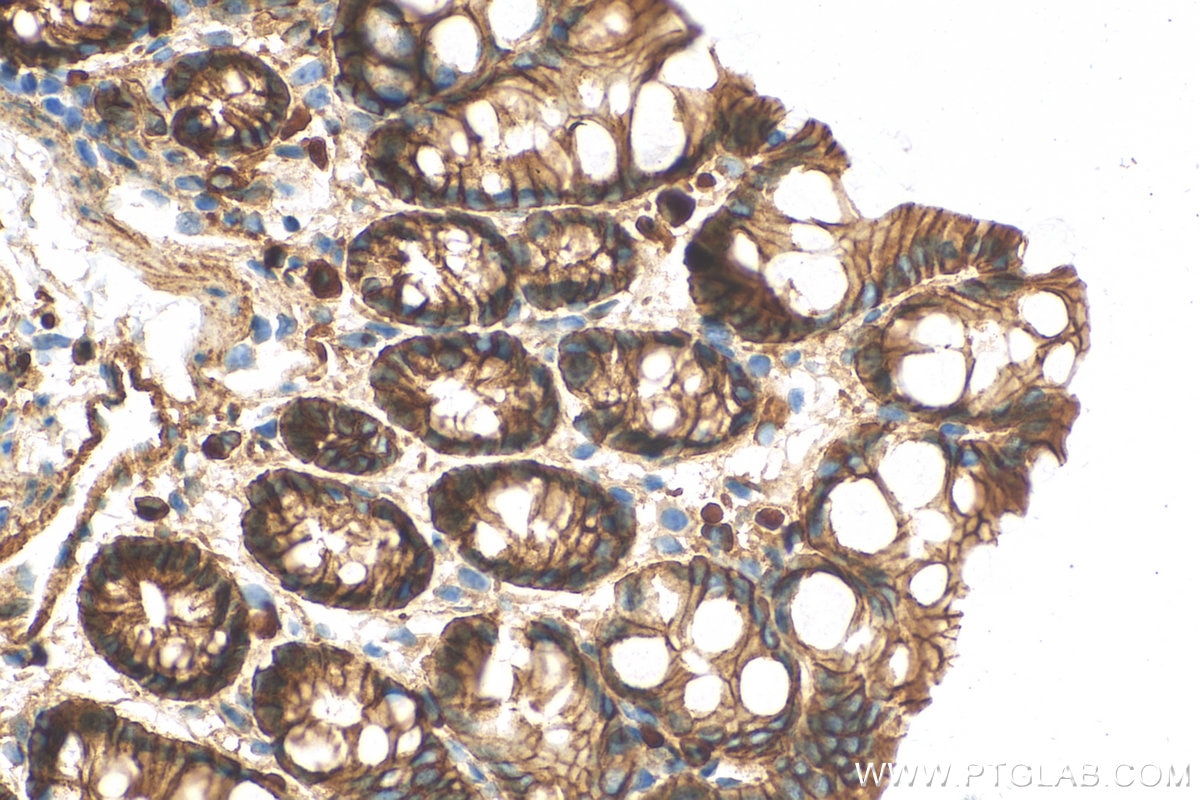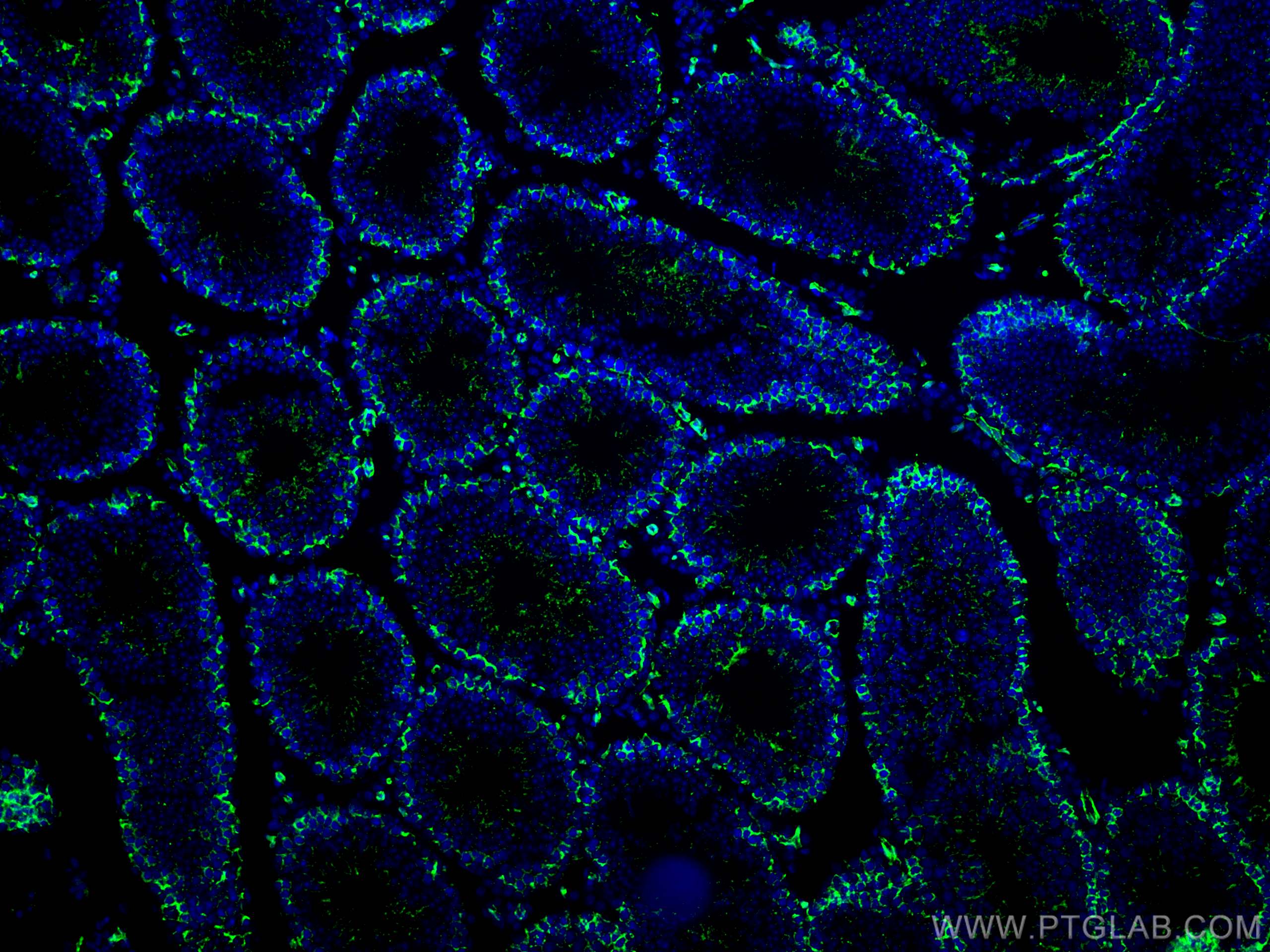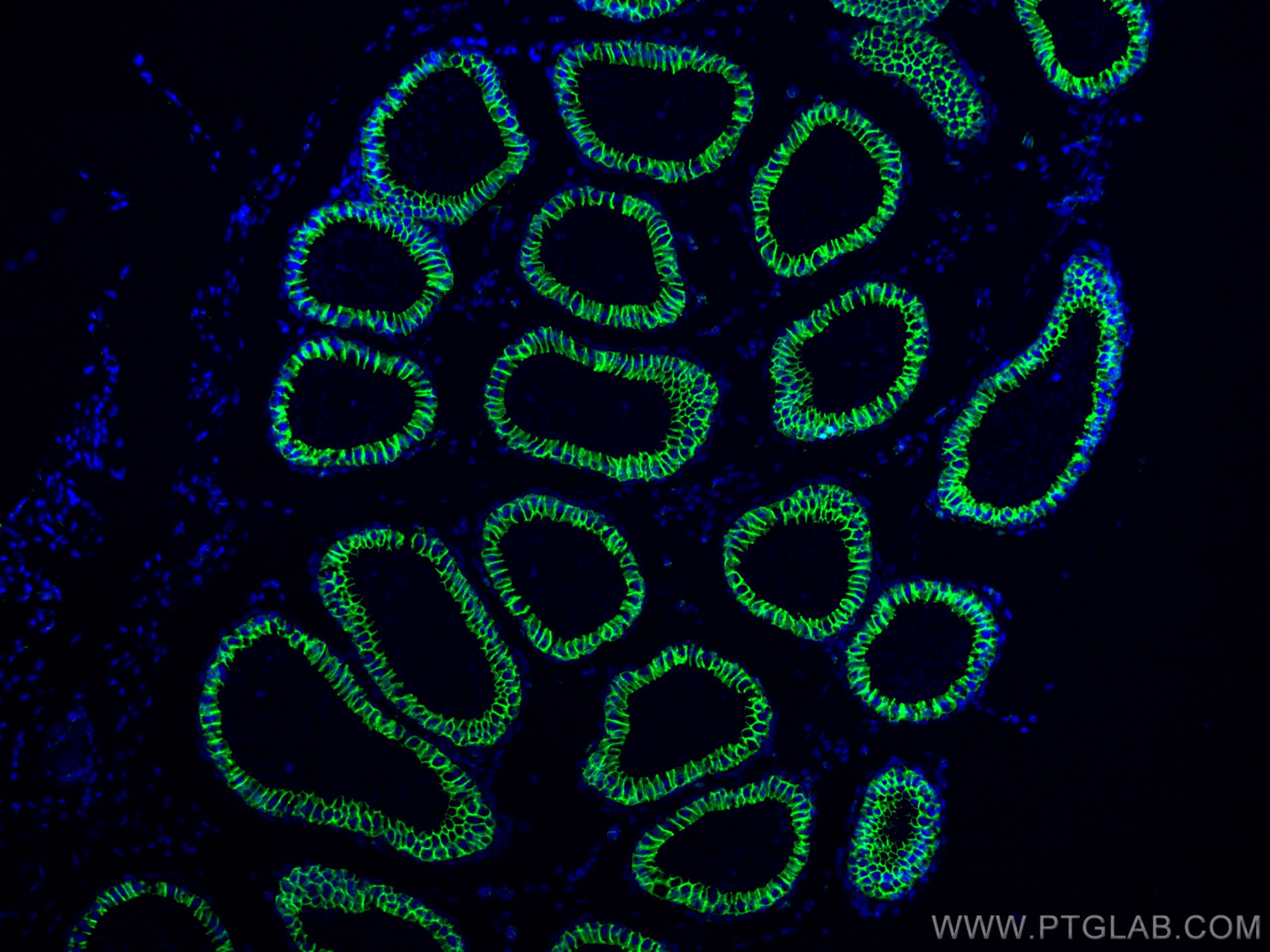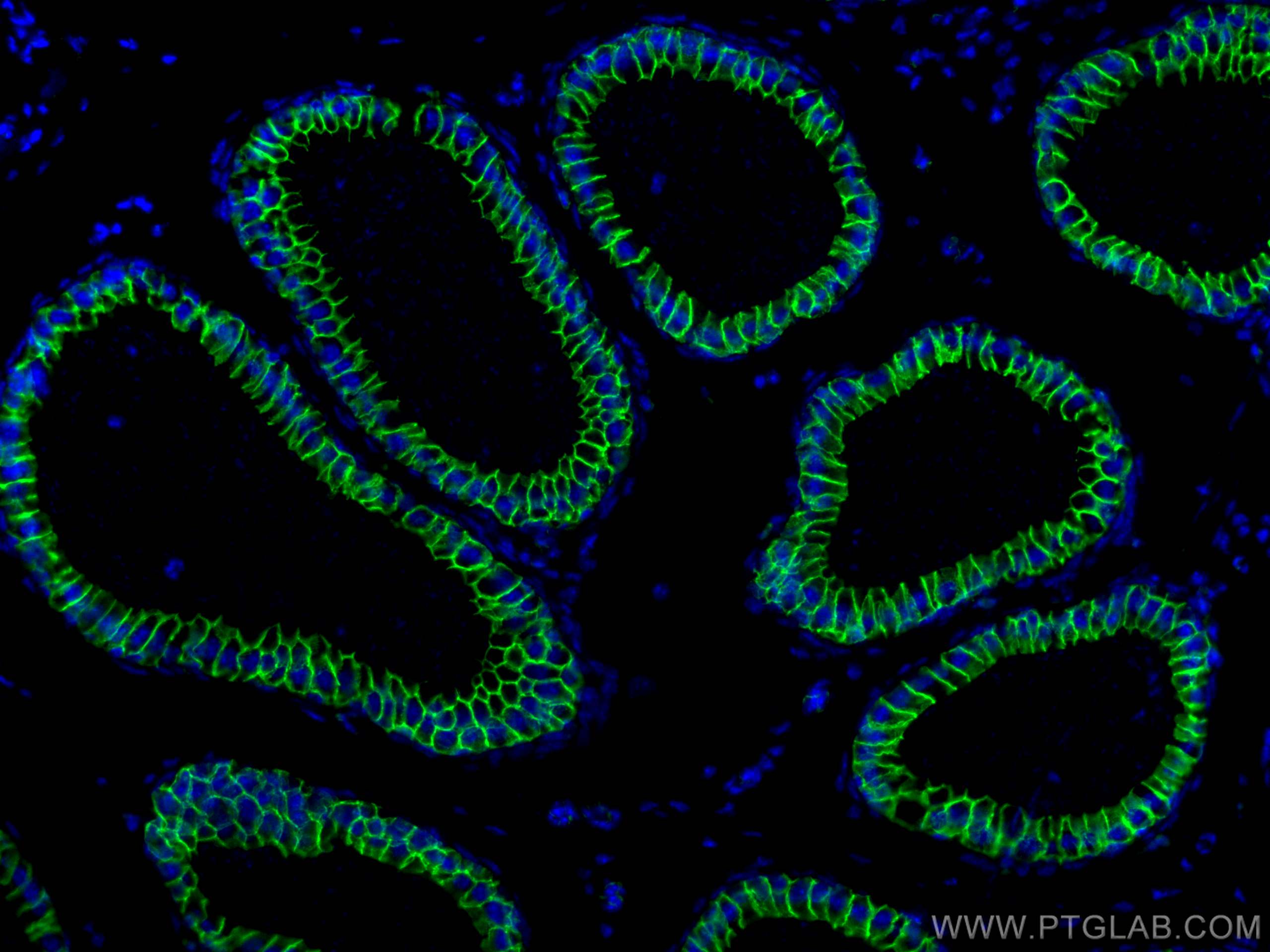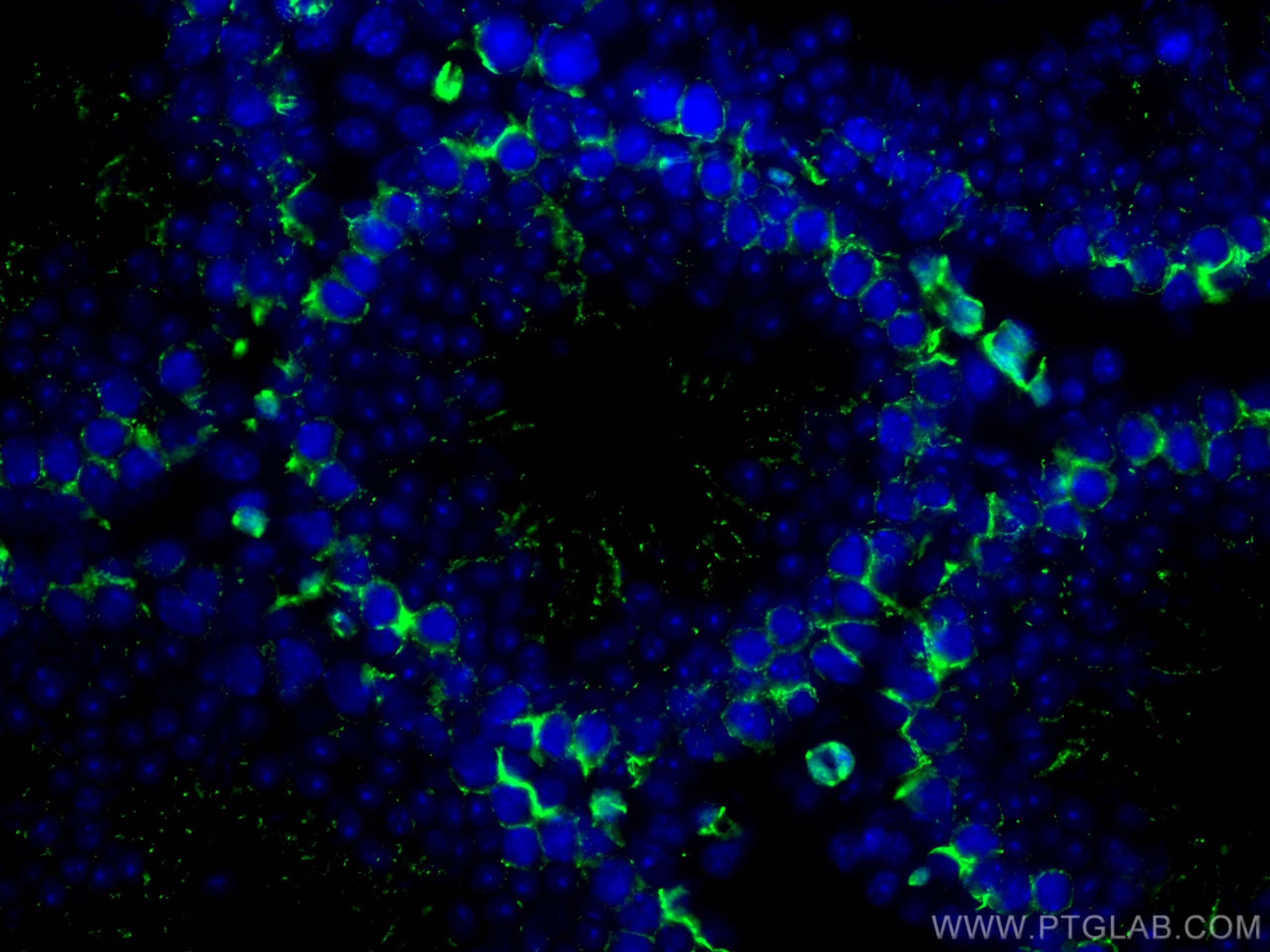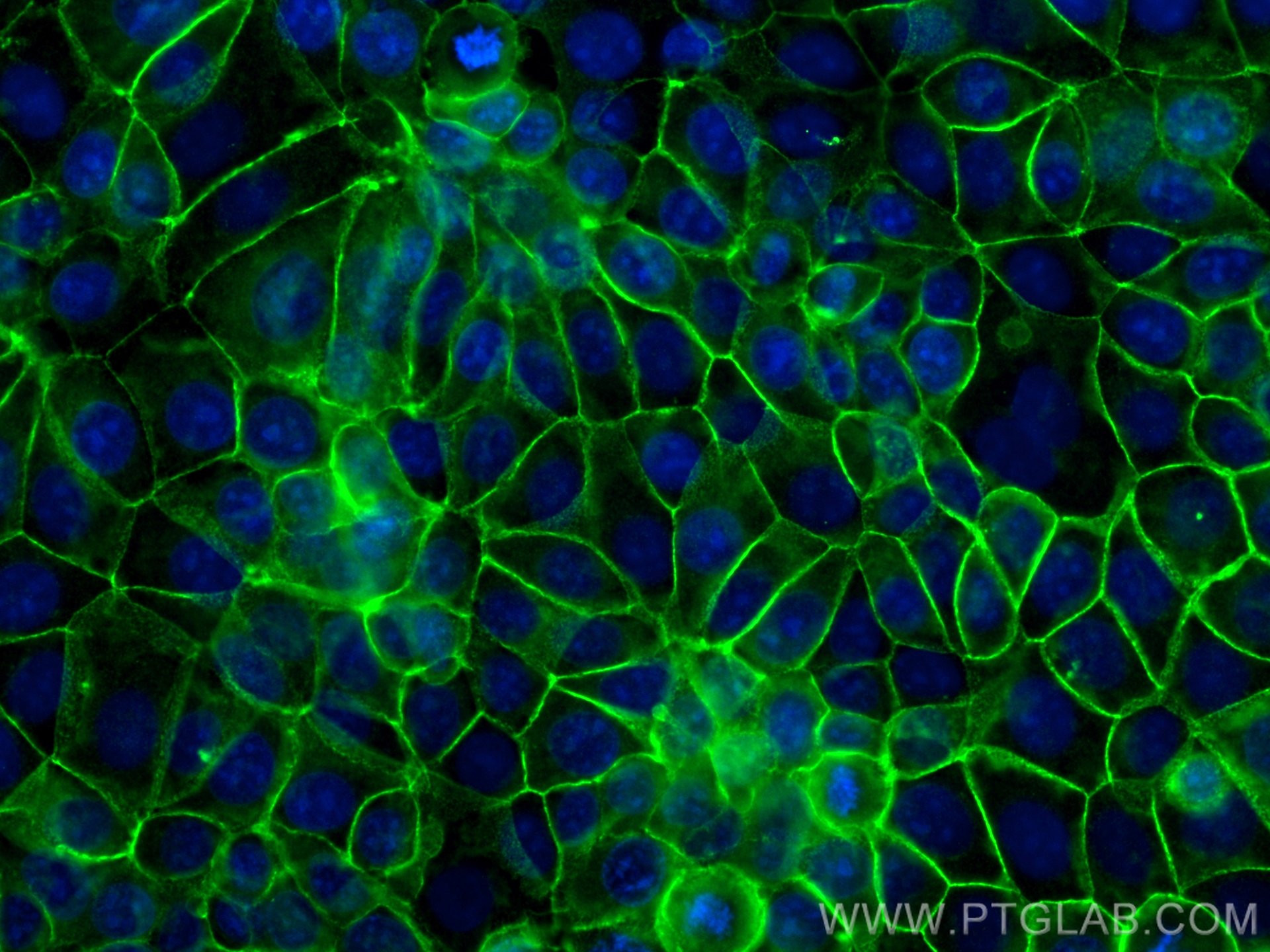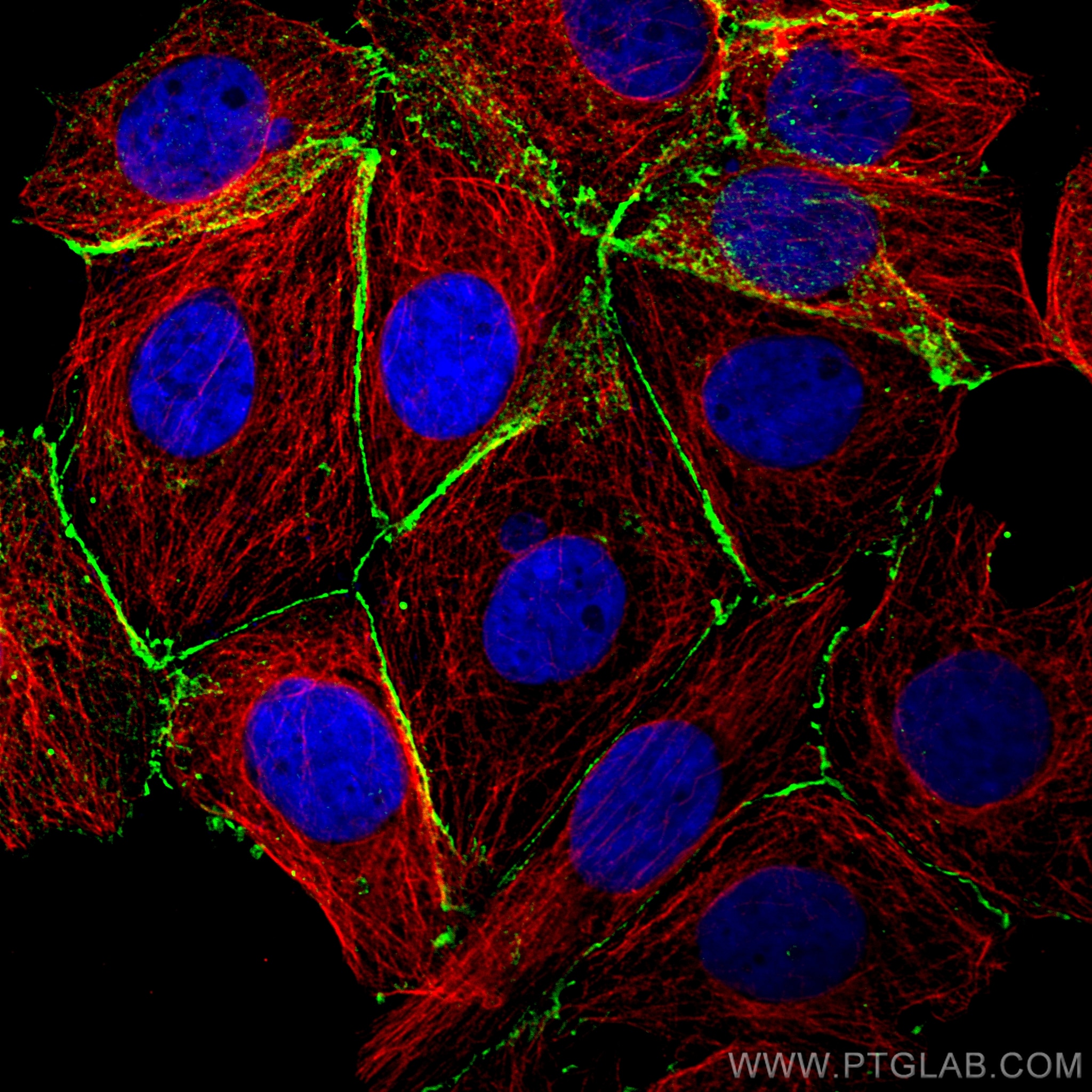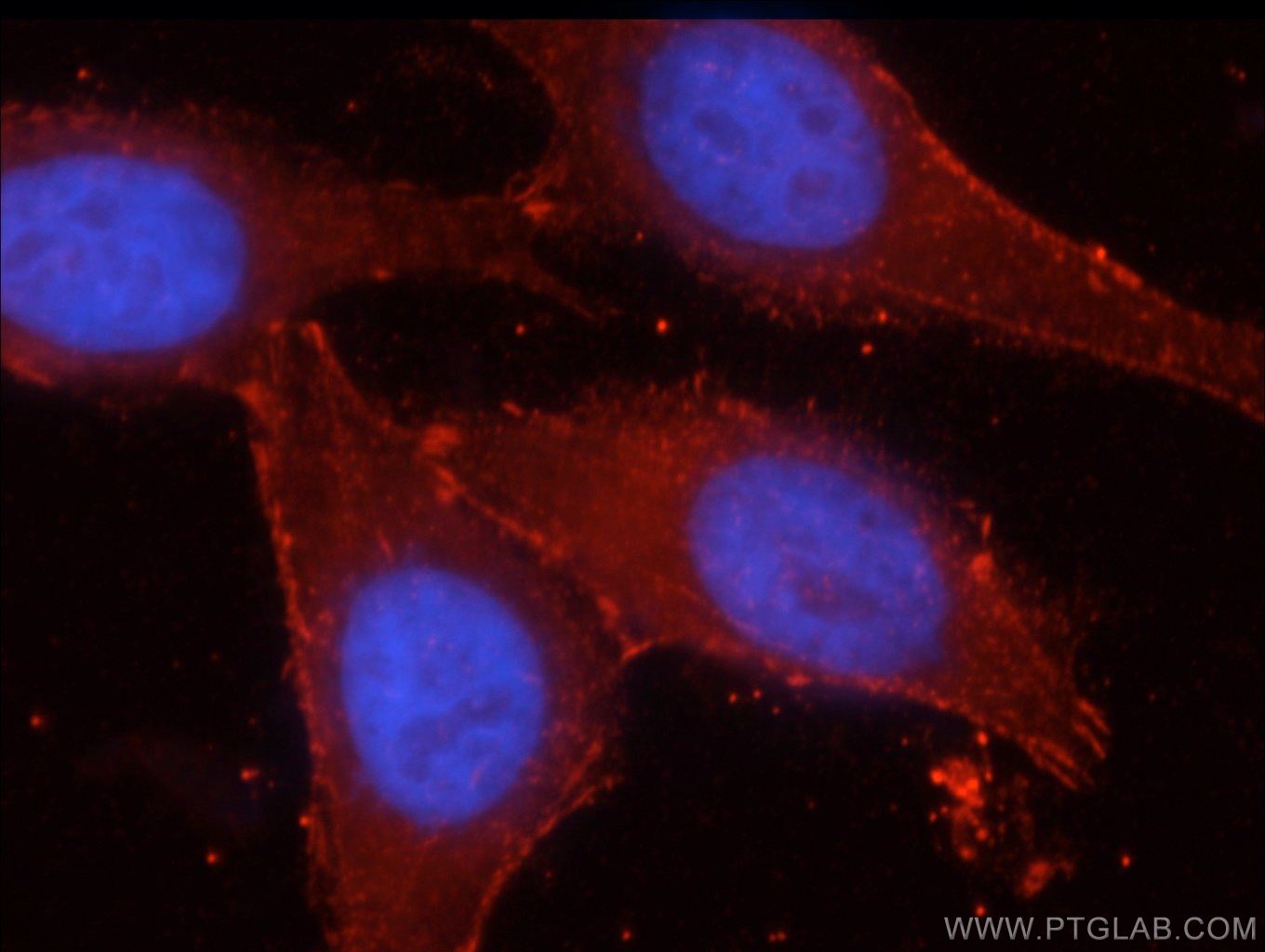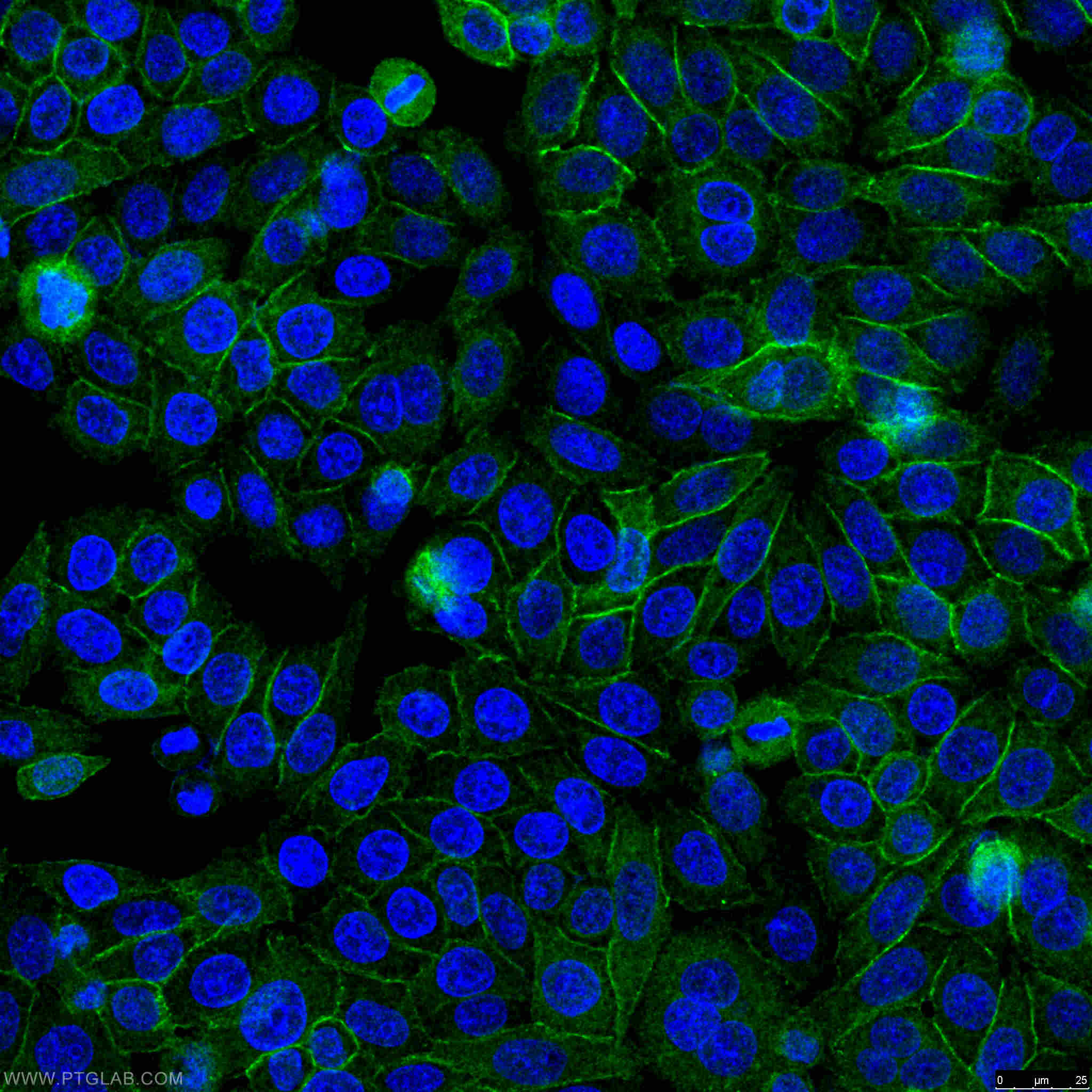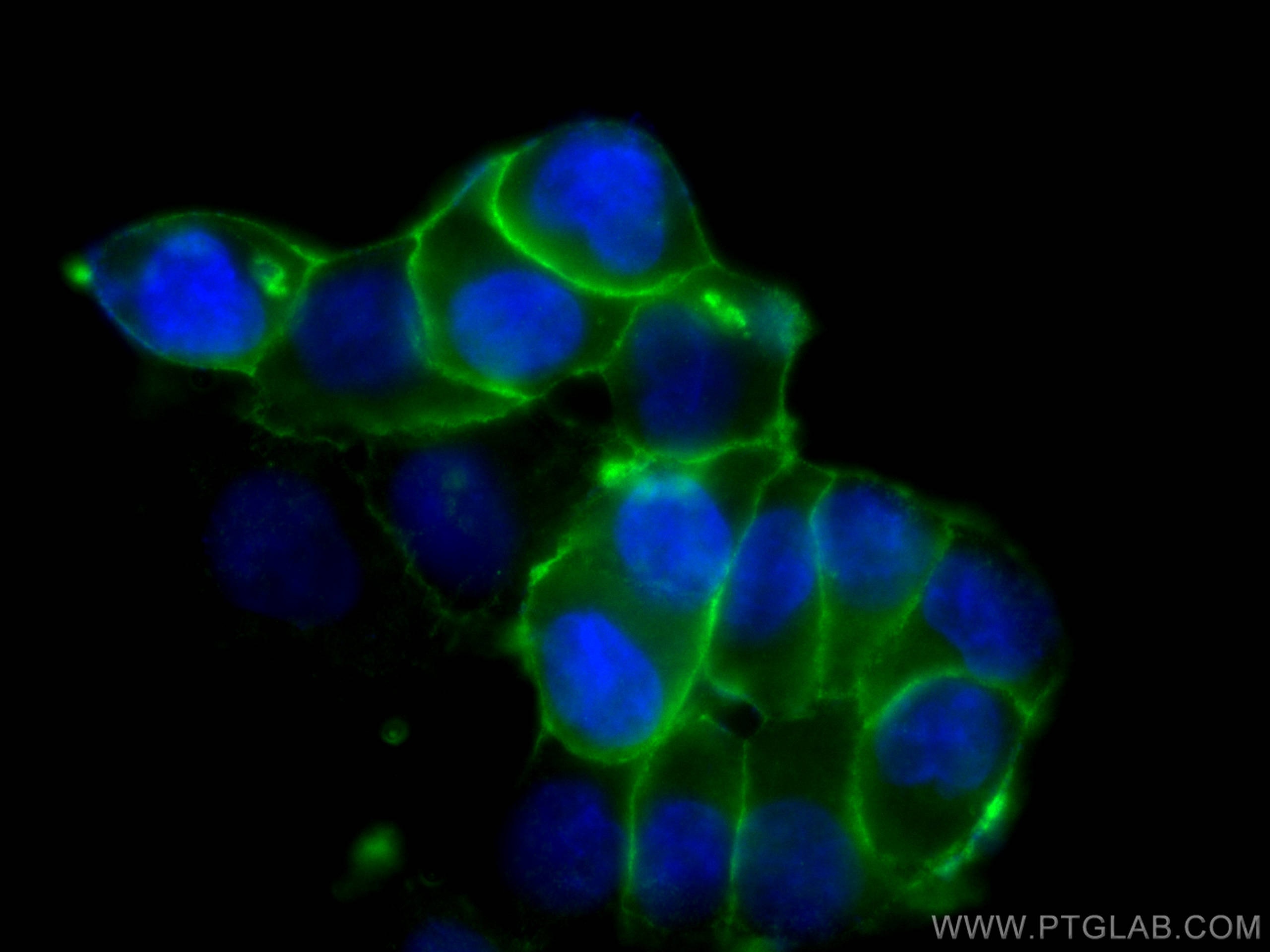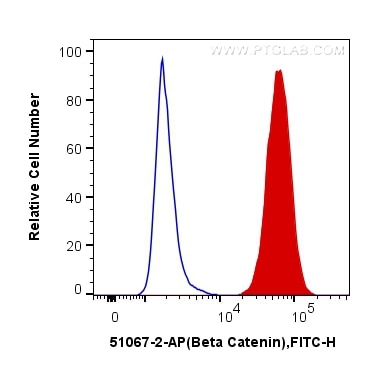- Phare
- Validé par KD/KO
Anticorps Polyclonal de lapin anti-Beta Catenin
Beta Catenin Polyclonal Antibody for WB, IHC, IF/ICC, IF-P, FC (Intra), IP, ELISA
Hôte / Isotype
Lapin / IgG
Réactivité testée
Humain, porc, rat, souris et plus (5)
Applications
WB, IHC, IF/ICC, IF-P, FC (Intra), IP, CoIP, ChIP, ELISA
Conjugaison
Non conjugué
N° de cat : 51067-2-AP
Synonymes
Galerie de données de validation
Applications testées
| Résultats positifs en WB | cellules A431, cellules C6, cellules HEK-293T, cellules HeLa, cellules NIH/3T3, tissu hépatique de rat, tissu hépatique de souris |
| Résultats positifs en IP | tissu hépatique de souris |
| Résultats positifs en IHC | tissu hépatique de souris, tissu de cancer du côlon humain, tissu de cancer du foie humain, tissu de côlon de souris il est suggéré de démasquer l'antigène avec un tampon de TE buffer pH 9.0; (*) À défaut, 'le démasquage de l'antigène peut être 'effectué avec un tampon citrate pH 6,0. |
| Résultats positifs en IF-P | tissu testiculaire de souris, mouse epididymis tissue |
| Résultats positifs en IF/ICC | cellules MCF-7, cellules HeLa, cellules HepG2, cellules T-47D, tissu testiculaire de souris |
| Résultats positifs en FC (Intra) | cellules MCF-7, |
Dilution recommandée
| Application | Dilution |
|---|---|
| Western Blot (WB) | WB : 1:5000-1:50000 |
| Immunoprécipitation (IP) | IP : 0.5-4.0 ug for 1.0-3.0 mg of total protein lysate |
| Immunohistochimie (IHC) | IHC : 1:1000-1:4000 |
| Immunofluorescence (IF)-P | IF-P : 1:500-1:2000 |
| Immunofluorescence (IF)/ICC | IF/ICC : 1:50-1:500 |
| Flow Cytometry (FC) (INTRA) | FC (INTRA) : 0.20 ug per 10^6 cells in a 100 µl suspension |
| It is recommended that this reagent should be titrated in each testing system to obtain optimal results. | |
| Sample-dependent, check data in validation data gallery | |
Informations sur le produit
51067-2-AP cible Beta Catenin dans les applications de WB, IHC, IF/ICC, IF-P, FC (Intra), IP, CoIP, ChIP, ELISA et montre une réactivité avec des échantillons Humain, porc, rat, souris
| Réactivité | Humain, porc, rat, souris |
| Réactivité citée | rat, bovin, canin, Chèvre, Humain, porc, poulet, souris, Hamster |
| Hôte / Isotype | Lapin / IgG |
| Clonalité | Polyclonal |
| Type | Anticorps |
| Immunogène | Peptide |
| Nom complet | catenin (cadherin-associated protein), beta 1, 88kDa |
| Masse moléculaire calculée | 781 aa, 86 kDa |
| Poids moléculaire observé | 92 kDa |
| Numéro d’acquisition GenBank | BC058926 |
| Symbole du gène | Beta Catenin |
| Identification du gène (NCBI) | 1499 |
| Conjugaison | Non conjugué |
| Forme | Liquide |
| Méthode de purification | Purification par affinité contre l'antigène |
| Tampon de stockage | PBS with 0.02% sodium azide and 50% glycerol |
| Conditions de stockage | Stocker à -20°C. Stable pendant un an après l'expédition. L'aliquotage n'est pas nécessaire pour le stockage à -20oC Les 20ul contiennent 0,1% de BSA. |
Informations générales
β-Catenin, also known as CTNNB1, is an evolutionarily conserved, multifunctional intracellular protein. β-Catenin is a 92-kDa protein, originally identified in cell adherens junctions (AJs) where it functions to bridge the cytoplasmic domain of cadherins to a-catenin and the actin cytoskeleton. Besides its essential role in the AJs, β-catenin is also a key downstream component of the canonical Wnt pathway that plays diverse and critical roles in embryonic development and adult tissue homeostasis. The Wnt/β-catenin pathway is also involved in the activation of other intracellular messengers such as calcium fluxes, JNK, and SRC kinases. Deregulation of β-catenin activity is associated with multiple diseases including cancers. (PMID: 22617422; 18334222)
Protocole
| Product Specific Protocols | |
|---|---|
| WB protocol for Beta Catenin antibody 51067-2-AP | Download protocol |
| IHC protocol for Beta Catenin antibody 51067-2-AP | Download protocol |
| IF protocol for Beta Catenin antibody 51067-2-AP | Download protocol |
| IP protocol for Beta Catenin antibody 51067-2-AP | Download protocol |
| Standard Protocols | |
|---|---|
| Click here to view our Standard Protocols |
Publications
| Species | Application | Title |
|---|---|---|
Cell Metab Mitochondrial Dynamics Is Critical for the Full Pluripotency and Embryonic Developmental Potential of Pluripotent Stem Cells. | ||
Hepatology Basolateral CD147 induces hepatocyte polarity loss by E-cadherin ubiquitination and degradation in hepatocellular carcinoma progress. | ||
Acta Pharm Sin B Protocatechuic aldehyde protects cardiomycoytes against ischemic injury via regulation of nuclear pyruvate kinase M2. | ||
Hepatology Long noncoding RNA DANCR increases stemness features of hepatocellular carcinoma via de-repression of CTNNB1. | ||
Avis
The reviews below have been submitted by verified Proteintech customers who received an incentive for providing their feedback.
FH kis (Verified Customer) (02-21-2025) | This antibody works well for western blotting at 1:1000 dilution for WB and 1:300 for IF.
|
FH Udesh (Verified Customer) (08-16-2023) | Worked well for WB and IF
|
FH Alzbeta (Verified Customer) (03-13-2019) | This antibody was used for IF staining of beta-catenin in primary neonatal rat cardiomyocyte culture. The antibody worked well after both ice cold-methanol or 4% PFA fixation, followed by the 3%BSA block. The incubation with primary (b-catenin) and secondary antibody (aRabbit-Alexa Fluor 488 Plus) lasted 1 hr at room temperature.
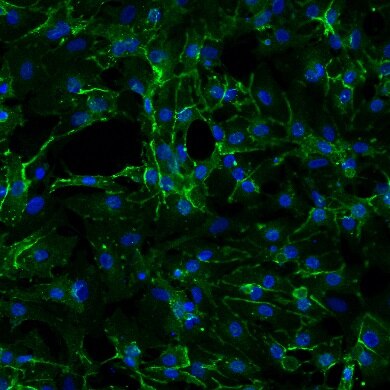 |
